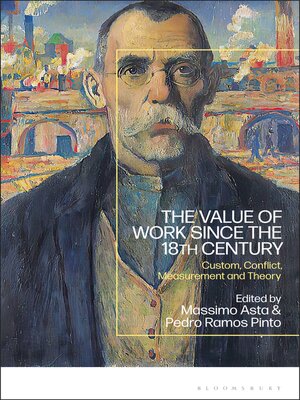The Value of Work since the 18th Century
ebook ∣ Custom, Conflict, Measurement and Theory
By Massimo Asta

Sign up to save your library
With an OverDrive account, you can save your favorite libraries for at-a-glance information about availability. Find out more about OverDrive accounts.
Find this title in Libby, the library reading app by OverDrive.



Search for a digital library with this title
Title found at these libraries:
| Library Name | Distance |
|---|---|
| Loading... |
Beginning in the 18th century, a turning point in labour history as work encountered an industrialising modernity, this book explores how different forms of work have been valued up to the present day. Focusing on the cultural, intellectual, social and political implications of wages, the chapters in this collection historicise the labour market, conceiving it as complex system of social relations which evolve through time and differ according to space. They show how the level of wages and other forms of remuneration reflect not only marginal productivity and scarcity but also the nature of work relations and wider political, social and economic circumstances.
With examples ranging across several centuries and different parts of the globe, it shows how wages are influenced by the specific organization and processes of work, conflict and power, social status and hierarchies between workers, custom and identity, family structure and professional ethics, ideology, politics and policy. Combining quantitative and qualitative approaches The Value of Work since the 18th Century also addresses two interlinked questions; how did theoretical interpretations and techniques of wage measurement emerge and evolve, and to what extent does this matter in understanding the social and political history of work?
With examples ranging across several centuries and different parts of the globe, it shows how wages are influenced by the specific organization and processes of work, conflict and power, social status and hierarchies between workers, custom and identity, family structure and professional ethics, ideology, politics and policy. Combining quantitative and qualitative approaches The Value of Work since the 18th Century also addresses two interlinked questions; how did theoretical interpretations and techniques of wage measurement emerge and evolve, and to what extent does this matter in understanding the social and political history of work?







